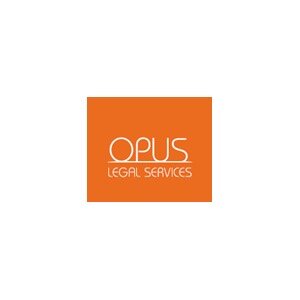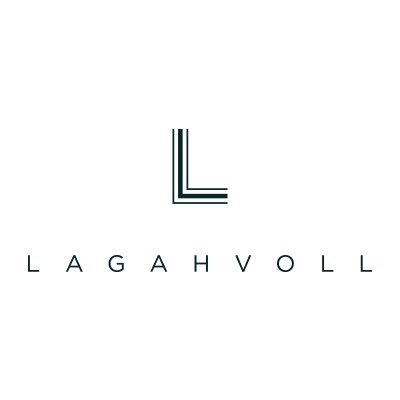Best Debt & Collection Lawyers in Reykjavik
Share your needs with us, get contacted by law firms.
Free. Takes 2 min.
List of the best lawyers in Reykjavik, Iceland
About Debt & Collection Law in Reykjavik, Iceland
Debt & Collection law in Reykjavik, Iceland is an intricate field that encompasses all legal processes involved in the collection of debts owed by individuals or businesses. These laws are aimed at ensuring fair practices in the collection of debts, protecting the rights of debtors, and providing legal avenues for creditors to recover their dues. In Reykjavik, like in the rest of Iceland, the legal framework governing debt and collection is designed to balance the interests of both parties while ensuring compliance with Icelandic consumer protection laws.
Why You May Need a Lawyer
There are several situations where seeking legal advice in the field of debt and collection may be necessary in Reykjavik, Iceland:
Unpaid Debts: Whether you are a creditor dealing with unpaid invoices or a debtor unable to pay, legal guidance can help navigate the complexities of collection processes and negotiations.
Dispute Resolution: If there is a disagreement over the amount owed or the validity of the debt, a lawyer can mediate and seek resolutions in accordance with Icelandic law.
Legal Documentation: Drafting and reviewing debt-related documents, such as promissory notes and settlement agreements, to ensure they comply with local laws and protect your interests.
Bankruptcy and Insolvency: When facing bankruptcy or insolvency, legal expertise is essential to manage proceedings, claim handling, and negotiations with creditors or debtors.
Debt Collection Agencies: For creditors considering hiring a debt collection agency, legal advice can be vital to ensure that the agency operates within the legal framework.
Local Laws Overview
Several local laws and regulations govern debt and collection in Reykjavik, Iceland:
The Act on Debt Enforcement and Composition: This act outlines the procedures for debt enforcement, including legal requirements and steps for the collection of debts through court proceedings.
The Civil Procedure Act: This act covers general legal proceedings in civil cases, including those involving debt disputes and enforcement claims.
The Bankruptcy Act: This legislation addresses insolvency issues, including the rights of debtors and creditors during bankruptcy proceedings.
Consumer Protection Laws: These laws protect consumers from unfair debt collection practices, including harassment or misleading information. They also ensure transparency and fairness in collection processes.
Interest Act: This act regulates the rates of interest that can be charged on overdue debts, ensuring they are just and reasonable.
Frequently Asked Questions
What should I do if I receive a debt collection notice?
On receiving a debt collection notice, it is advisable to review the claim, ensure it is accurate, and understand your rights. If necessary, seek legal advice to address the situation appropriately.
Can unpaid debts affect my credit score in Iceland?
Yes, unpaid debts can impact your credit rating in Iceland. It is crucial to address outstanding dues promptly to avoid negative credit history entries.
How long can a debt be pursued legally in Reykjavik?
In general, the statute of limitations for pursuing debts in Iceland varies depending on the type of debt. Usually, this period ranges from 2 to 10 years, during which the creditor can take legal action.
What are my rights if I am unable to repay my debts?
As a debtor, you have rights under Icelandic law, including protections against unfair collection practices. It’s advisable to seek legal counsel to understand your options for negotiations, settlement, or insolvency proceedings.
Can a creditor contact my family or coworkers about my debt?
No, creditors or debt collectors in Iceland are prohibited from disclosing your debt to third parties, including family and coworkers, as it violates privacy rights.
What is the process for enforcing a debt through Icelandic courts?
The process typically involves filing a legal claim, obtaining a judgment, and then proceeding with enforcement actions such as wage garnishment or asset seizure, all conducted under court supervision.
Are there any fees associated with debt collection procedures?
Yes, there are various fees involved in the debt collection process, including court fees and legal representation costs. It’s important to be aware of these potential expenses.
Can interest be charged on overdue debts in Reykjavik?
Yes, interest can be charged on overdue debts in accordance with the Interest Act, which sets guidelines for interest rates to ensure they are fair and reasonable.
How can a lawyer help me in negotiating a debt settlement?
A lawyer can assist in negotiating a debt settlement by providing legal advice, representing your interests, and ensuring any settlement agreements are legally binding and fair.
What should I look for when choosing a debt collection lawyer in Reykjavik?
Consider the lawyer's experience in debt and collection law, their understanding of local regulations, reputation, success rate in similar cases, and professional rapport during consultations.
Additional Resources
Several resources can be helpful for those seeking legal advice in Debt & Collection in Reykjavik, Iceland:
Icelandic Consumer Agency (Neytendastofa): This governmental body provides information and assistance concerning consumer rights and protections, including those related to debt collection.
The Icelandic Bar Association (Lögmannafélag Íslands): They offer references for finding qualified lawyers who specialize in Debt & Collection law.
Financial Supervisory Authority of Iceland (FME): They oversee financial institutions and ensure they comply with local laws, including those related to debt management and collection.
Next Steps
If you need legal assistance in Debt & Collection in Reykjavik, Iceland, here are some steps to get started:
Identify Your Needs: Determine whether you are seeking help as a creditor or debtor and the specific nature of your issue.
Research Legal Professionals: Look for experienced debt collection lawyers in Reykjavik and consider scheduling consultations to discuss your case.
Prepare Documentation: Gather all relevant documents, including contracts, invoices, communication records, and any previous legal notices, to provide a comprehensive overview to your lawyer.
Seek Legal Advice: Consult with a lawyer to understand your rights, obligations, and the available legal options to address your debt-related issues. Following these steps can help you manage your debt collection matters efficiently and ensure your interests are protected under Icelandic law.
Lawzana helps you find the best lawyers and law firms in Reykjavik through a curated and pre-screened list of qualified legal professionals. Our platform offers rankings and detailed profiles of attorneys and law firms, allowing you to compare based on practice areas, including Debt & Collection, experience, and client feedback.
Each profile includes a description of the firm's areas of practice, client reviews, team members and partners, year of establishment, spoken languages, office locations, contact information, social media presence, and any published articles or resources. Most firms on our platform speak English and are experienced in both local and international legal matters.
Get a quote from top-rated law firms in Reykjavik, Iceland — quickly, securely, and without unnecessary hassle.
Disclaimer:
The information provided on this page is for general informational purposes only and does not constitute legal advice. While we strive to ensure the accuracy and relevance of the content, legal information may change over time, and interpretations of the law can vary. You should always consult with a qualified legal professional for advice specific to your situation.
We disclaim all liability for actions taken or not taken based on the content of this page. If you believe any information is incorrect or outdated, please contact us, and we will review and update it where appropriate.














